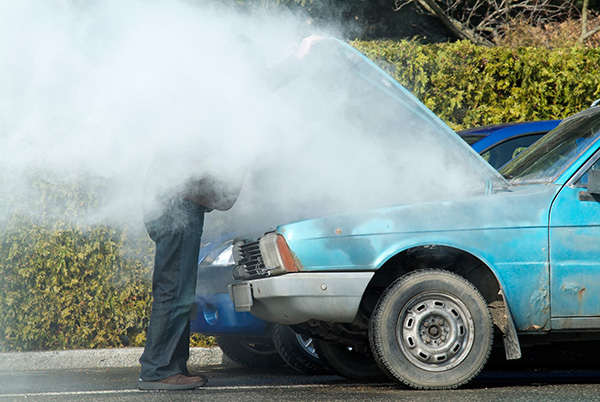
Nothing is quite as alarming as seeing that temperature gauge spike into the red zone while you're driving. Car overheating is a serious issue that can leave you stranded on the side of the road or facing hefty repair bills. But why does it happen, and what can you do about it? We'll share the common reasons behind this problem and how you can prevent it.
What Happens When Your Car Overheats
Before we tackle why your car overheats, it's important to understand what overheating means. Your car's engine operates at a high temperature and relies on a cooling system to keep everything in check. When that system fails, temperatures can soar beyond safe levels, causing damage to various engine components.
An overheating engine can lead to serious consequences, like a blown head gasket, warped cylinders, or even a complete engine failure. The longer you let it run hot, the more damage you're likely to face. That's why it's crucial to recognize the warning signs and address the issue before it escalates.
Common Causes of Car Overheating
So, why exactly is your car overheating? There are several potential culprits, and knowing these can help you diagnose the issue quickly.
Low Coolant Levels
One of the most common reasons for overheating is a lack of coolant. Coolant, or antifreeze, is the liquid that circulates through your engine, absorbing heat and keeping temperatures down. If there's not enough coolant in the system, your engine can quickly overheat. This might be due to a leak somewhere in the system, which could be in the radiator, hoses, or even the water pump.
Faulty Thermostat
The thermostat in your car acts as a gatekeeper, regulating the flow of coolant between the engine and the radiator. If this small part gets stuck in the closed position, it won't allow coolant to flow properly, leading to an overheated engine. A faulty thermostat is often an overlooked issue, but it can cause serious problems if not addressed.
Radiator Problems
Your car’s radiator plays a critical role in cooling the engine. If it's clogged with debris or has a buildup of rust and corrosion, it won’t be able to do its job effectively. This can result in poor heat dissipation, causing the engine to overheat. A malfunctioning radiator fan or a broken fan belt can also be to blame. The fan helps cool the radiator by drawing air through it; if it’s not working, the engine will run hotter than it should.
Water Pump Failure
The water pump is the heart of your car's cooling system, pumping coolant through the engine and radiator. If the pump fails or is unable to circulate the coolant efficiently due to a worn-out impeller or leaks, overheating is inevitable. This part tends to wear out over time, especially if your car has high mileage.
Blocked or Damaged Hoses
Hoses are responsible for carrying coolant to and from your engine, radiator, and heater core. If any of these hoses are blocked, damaged, or collapsed, they can restrict the flow of coolant, leading to overheating. Regular inspections can help catch these issues early before they escalate.
What To Do If Your Car Overheats on the Road
Now that you know the common causes, what should you do if you find yourself dealing with an overheating car while driving? Here are a few immediate steps to take:
- Turn Off the AC: Your air conditioning puts extra strain on the engine, so turn it off to reduce the load.
- Turn On the Heater: This might sound counterintuitive, but turning on the heater helps draw heat away from the engine, potentially lowering the temperature.
- Pull Over Safely: If the temperature gauge continues to climb, pull over as soon as it’s safe to do so. Let your car cool down completely before attempting to check under the hood. Opening the radiator cap on a hot engine can cause burns due to steam or hot coolant.
- Check Coolant Levels: If you have coolant on hand, adding some to the reservoir might help temporarily. However, this is only a short-term fix until you can get your vehicle checked out by a professional.
Preventing Overheating: Simple Maintenance Tips
Regular maintenance is key to avoiding overheating issues. Here are a few tips to keep your engine cool and running efficiently:
- Check Coolant Levels Regularly: Make it a habit to check your coolant levels, especially before long drives. Top it off if necessary and ensure there are no leaks.
- Inspect Hoses and Belts: Periodically inspect the hoses and belts for signs of wear or damage. Replace them if you notice any cracks, leaks, or looseness.
- Flush Your Cooling System: Over time, your cooling system can accumulate rust, scale, and debris. Flushing the system every couple of years can help maintain optimal performance.
- Monitor Your Temperature Gauge: Keep an eye on your temperature gauge while driving. If it starts climbing above normal, take action before it’s too late.
Experiencing frequent overheating? Let J & F Motors inspect your cooling system today. Our experts will keep your engine running cool and reliable, no matter the season.